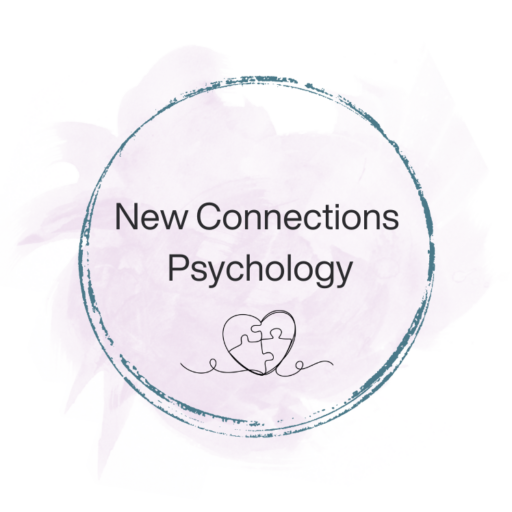Talking Openly About Anxiety: Breaking the Silence and Finding Support
Introduction
In today’s fast-paced and often overwhelming world, many of us experience anxiety in one form or another. Yet despite how common it is, anxiety is still something people often carry in silence. This blog aims to gently open up a conversation about anxiety — its impact, the many ways it can show up in our lives, and how reaching out for support can make a meaningful difference.
Understanding Anxiety
Anxiety is more than everyday stress or occasional worry. It’s a complex mental health difficulty that can cause persistent feelings of fear, nervousness, or unease, often without an obvious reason. It can manifest in many ways — from generalized anxiety disorder (GAD) to social anxiety, panic attacks, or specific phobias.
Recognizing the diversity of these experiences is important, not just for those living with anxiety but for the people around them as well. Everyone’s experience of anxiety is unique, and each person’s story deserves to be met with empathy, curiosity, and care.
The Impact of Anxiety on Daily Life
Anxiety can affect every aspect of a person’s life, including work, relationships, and physical health. It might show up as difficulty sleeping, irritability, muscle tension, trouble concentrating, persistent worry or debilitating fear that’s hard to shake.
These symptoms are very real and can be exhausting. It’s important to approach them with the same compassion and seriousness we would for any physical health concern. Naming what we’re going through — and allowing others to do the same — can be a powerful first step toward feeling better.
Breaking the Stigma
One of the greatest challenges people face when dealing with anxiety is the lingering stigma around mental health. Many still feel ashamed or embarrassed to admit they’re struggling, which can deepen feelings of isolation.
We can begin to change this by talking openly about our experiences, listening without judgment, and reminding each other that it’s okay to ask for help. No one should have to navigate difficult experiences alone.
Coping Strategies
There’s no one-size-fits-all solution for managing anxiety. What soothes one person may not work for another — and that’s perfectly okay. Some helpful strategies can include:
-
Mindfulness practices such as meditation, breathing exercises, or grounding techniques
-
Physical activity like walking, yoga, or any movement that feels good
-
Creative hobbies and activities that offer a sense of calm or joy
-
Prioritizing rest, nutrition, and gentle routines to support overall well-being
Remember, small, consistent practices often make a bigger difference than grand, overwhelming changes.
The Role of Support Systems
Having people who can listen, offer reassurance, and simply be there can make a world of difference. Whether it’s a friend, partner, family member, or community group, support systems remind us we don’t have to face our struggles alone.
It’s also important for loved ones to recognize their own limits — they don’t have to have all the answers. Often, their most valuable gift is compassionate presence.
The Importance of Professional Help
While self-care strategies and support networks are essential, seeking professional help can be life-changing for those living with anxiety. Therapy offers a safe, non-judgmental space to explore emotions, fears, and coping patterns.
Recent research highlights that treatments like cognitive-behavioral therapy (CBT) remain highly effective for many anxiety disorders. CBT focuses on identifying and gently challenging unhelpful thought patterns while building practical coping skills.
Acceptance and Commitment Therapy (ACT) has also shown strong evidence for reducing anxiety symptoms. ACT helps people develop psychological flexibility — learning to accept uncomfortable thoughts and feelings while taking actions aligned with their personal values.
Additionally, compassion-focused therapy (CFT) has gained attention for addressing the shame and self-criticism that often accompany anxiety. CFT fosters self-kindness, which can be especially healing for those who’ve struggled in silence.
Eye Movement Desensitization and Reprocessing (EMDR) is another promising approach, particularly for anxiety rooted in trauma or distressing past experiences.
The important thing is that therapy is not about “fixing” anyone — it’s about offering a supportive environment where people can reconnect with their inner resilience and rediscover what helps them feel safe and steady.
The Role of Medication
For some people, medication can be a helpful part of managing anxiety. It’s a deeply personal decision, best made in collaboration with a trusted healthcare professional. Medication may ease symptoms enough to allow other forms of support, like therapy and self-care, to be more accessible and effective.
Practicing Self-Compassion
Living with anxiety is not easy, and it takes courage to face those challenges each day. Along the way, it’s important to be gentle with yourself. Healing isn’t a straight line — there will be good days and harder ones. Celebrate the small wins and offer yourself kindness in the moments that feel heavy.
Conclusion
Anxiety is a deeply human experience, and you are not alone in what you’re going through. By talking openly, breaking down stigma, and creating compassionate spaces — both in our communities and within ourselves — we can begin to ease the weight of anxiety.
If you’re struggling, know that it’s okay to reach out. Seeking help is not a weakness — it’s a brave and hopeful step toward feeling more connected and supported.

